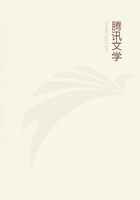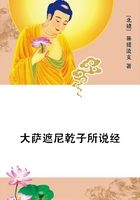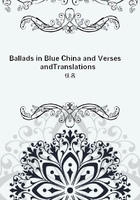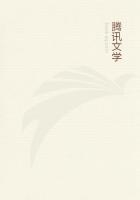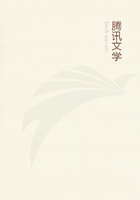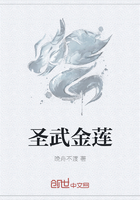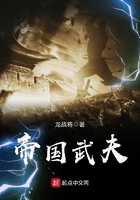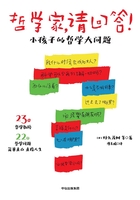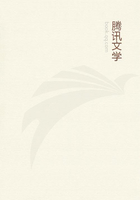Dante's loathing of Epicurus, or of what he took to be his doctrine, was certainly sincere.The poet of the life to come could not but detest the denier of immortality; and a world neither made nor ruled by God, no less than the vulgar objects of earthly life which the system appeared to countenance, could not but be intensely repugnant to a nature like his.But if we look closer, we find that certain doctrines of the ancients made even on him an impression which forced the biblical doctrine of the Divine government into the background unless, indeed, it was his own reflection, the influence of opinions then prevalent, or loathing for the injustice that seemed to rule this world, which made him give up the belief in a special Providence His God leaves all the details of the world's government to a deputy, Fortune, whose sole work it is to change and change again all earthly things, and who can disregard the wailings of men in unalterable beatitude.Nevertheless, Dante does not for a moment fail to insist on the moral responsibility of man; he believes in free will.The belief in the freedom of the will, in the popular sense of the words, has always prevailed in Western countries.At all times men have been held responsible for their actions, as though this freedom were a matter of course.The case is otherwise with the religious and philosophical doctrine, which labors under the difficulty of harmonizing the nature of the will with the laws of the universe at large.We have here to do with a question of more or less, which every moral estimate must take into account.Dante is not wholly free from those astrological superstitions which illumined the horizon of his time with deceptive light, but they do not hinder him from rising to a worthy conception of human nature.'The stars,' he makes his Marco Lambert say ('Purgatorio,' xvi, 73), 'the stars give the first impulse to your actions, but a light is given you to know good and evil, and free will, which, if it endure the strain in its first battlings with the heavens, at length gains the whole victory, if it be well nurtured.'
Others might seek the necessity which annulled human freedom in another power than the stars, but the question was henceforth an open and inevitable one.So far as it was a question for the schools or the pursuit of isolated thinkers, its treatment belongs to the historian of philosophy.But inasmuch as it entered into the consciousness of a wider public, it is necessary for us to say a few words respecting it.
The fourteenth century was chiefly stimulated by the writings of Cicero, who, though in fact an eclectic, yet, by his habit of setting forth the opinions of different schools, without coming to a decision between them, exercised the influence of a skeptic.Next in importance came Seneca, and the few works of Aristotle which had been translated into Latin.The immediate fruit of these studies was the capacity to reflect on great subjects, if not in direct opposition to the authority of the Church, at all events independently of it.
In the course of the fifteenth century the works of antiquity were discovered and diffused with extraordinary rapidity.All the writings of the Greek philosophers which we ourselves possess were now, at least in the form of Latin translations, in everybody's hands.It is a curious fact that some of the most zealous apostles of this new culture were men of the strictest piety, or even ascetics.Fra Ambrogio Camaldolese, as a spiritual dignitary chiefly occupied with ecclesiastical affairs, and as a literary man with the translation of the Greek Fathers of the Church, could not repress the humanistic impulse, and at the request of Cosimo de' Medici, undertook to translate Diogenes Laertius into Latin.His contemporaries, Niccolo Niccoli, Giannozzo Manetti, Donato Acciaiuoli, and Pope Nicholas V, united to a many-sided humanism profound biblical scholarship and deep piety.In Vittorino da Feltre the same temper has been already noticed.
The same Maffeo Vegio, who added a thirteenth book to the Aeneid, had an enthusiasm for the memory of St.Augustine and his mother, Monica, which cannot have been without a deeper influence upon him.The result of all these tendencies was that the Platonic Academy at Florence deliberately chose for its object the reconciliation of the spirit of antiquity with that of Christianity.It was a remarkable oasis in the humanism of the period.
This humanism was in fact pagan, and became more and more so as its sphere widened in the fifteenth century.Its representatives, whom we have already described as the advance guard of an unbridled individualism, display as a rule such a character that even their religion, which is sometimes professed very definitely, becomes a matter of indifference to us.They easily got the name of atheists, if they showed themselves indifferent to religion and spoke freely against the Church; but not one of them ever professed, or dared to profess, a formal, philosophical atheism.If they sought for any leading principle, it must have been a kind of superficial rationalism--a careless inference from the many and contradictory opinions of antiquity with which they busied themselves, and from the discredit into which the Church and her doctrines had fallen This was the sort of reasoning which was near bringing Galeotto Martio to the stake, had not his former pupil, Pope Sixtus IV, perhaps at the request of Lorenzo de'
Medici, saved him from the hands of the Inquisition.Galeotto had ventured to write that the man who lived uprightly, and acted according to the natural law born within him, would go to heaven, whatever nation he belonged to.

